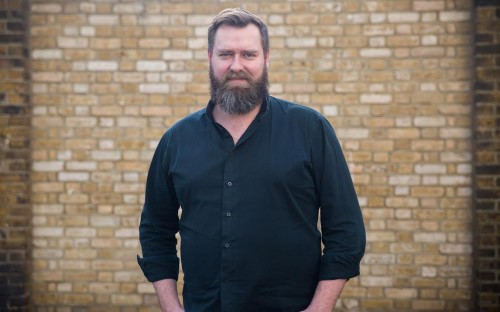Before a one-year MBA at the UK’s Bath School of Management, Ben spent almost a decade running his own moving company based in Hong Kong. With his co-founder, he guided the business through the global financial crisis, expanding across Asia, establishing offices in Shanghai and Singapore, and building a team of 60 employees.
When he sold up in 2013, his revenues exceeded $10 million. But had he taken an MBA beforehand, he thinks he could have sold his business for more.
Ben joined Bath with no clear career plan. He came across MVF – a market leader in the lead generation space - while working on his MBA dissertation. In 2016, MVF was named among the top five best companies to work for in the UK by the Sunday Times newspaper.
Ben emailed the CEO, they met, and he got the job. Now, he’s head of MVF’s moving division, MoveHub. He’s still involved in entrepreneurship at Bath, and recently sat on the judging panel for a business plan competition at the school.
Why should entrepreneurs study MBAs?
MBAs have a real challenge around entrepreneurship. There’s still a prevailing thought that there are some aspects of entrepreneurship that can’t be taught. I would disagree with that.
I take entrepreneurship as being quite a philosophical concept. You can be entrepreneurial working for PwC. It’s about taking control of your circumstance, seeing opportunity and seizing it. Entrepreneurial thinking can be guided and polished. And MBAs provide the tools, and the broadening of perspectives, that allow entrepreneurial activity to flourish.
For me, the MBA was a great privilege. As an entrepreneur, you’re constantly working. Having that time to concentrate on study, meet new people, and explore new business models, ideas and concepts, massively opens your mind. I wanted to draw a line under the entrepreneurial experience that I’d had, question some of the things that I’d done, and take as many lessons as I could from it going forward.
Why did you decide to sell your business and pursue an MBA at Bath?
We traded through the global financial crisis. Typically, in recession, when the banks fire everyone, everyone moves out. For us, as a moving company out in Asia, recession is actually quite a good thing. Unfortunately, this one lasted a long time.
What started off as being good for us, became quite a challenging environment. We pulled ourselves through it, and then an offer came along from a big multinational which was too good to turn down.
Coming back to the UK, with a wife and two young kids, an MBA seemed like a great way to transition into something else. I did my undergraduate degree at Bath, and I’d always wanted to come back and do an MBA. The Bath MBA is a world-class program, well-ranked and highly-regarded in the UK.
What would you have done differently with the knowledge of an MBA on board?
My business partner and I retained 100% control of the business between the two of us until the day we sold it. That’s not necessary. For a business that needs to scale, there are funds out there. Had I studied the MBA, I think we would have taken more risks. We would have scaled quicker, and looked to onboard other people’s money to do that.
We very much looked at ourselves as a logistics company. With the hindsight of the MBA, you take a spotlight view. If we had taken a decision to look at ourselves more as a mobility company, or as a tech company that deals with the movement of people, we would have enjoyed far bigger valuations.
How did the Bath MBA help you land a job at MVF?
The MBA gave me the confidence to be able to go straight to the CEO and discuss what I needed to discuss. I was a good candidate, and I put some of that to the MBA. There’s the credibility of the MBA that opens the door, and there’s the ability to walk the walk because of the experience of studying business over the year.
What advice do you have for applicants looking to do an MBA?
Go into it with an open mind. And be prepared to have your mind changed about what you’re good at, and what you might end up doing.
If you go into the MBA saying: ‘I’m an accountant. I want to be an accountant with an MBA.’ Then that’s what you’ll end up as. If you go into it saying: ‘My passion is accountancy, and an MBA might broaden my horizons to do all sorts of things.’ Your doors will always be open.
RECAPTHA :
fd
a7
16
d0








